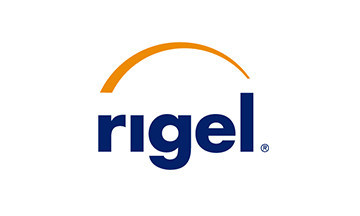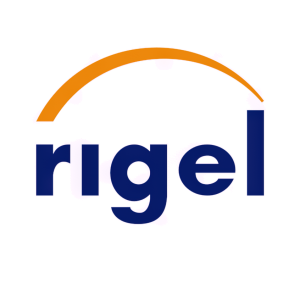Rigel Announces Two Posters Highlighting TAVALISSE at the 62nd ASH Annual Meeting & Exposition
Rigel Pharmaceuticals (RIGL) announced that data on TAVALISSE (fostamatinib) will be showcased at the 62nd American Society of Hematology Annual Meeting from December 5-8, 2020. Key presentations include long-term safety data from over 3,500 patients with immune thrombocytopenia (ITP) and rheumatoid arthritis, showing no new safety signals. Additionally, the company will discuss results from a Phase 3 trial for warm autoimmune hemolytic anemia, where 44% of patients exhibited improved hemoglobin levels. Fostamatinib is the first SYK inhibitor approved for chronic ITP treatment.
- Presentation of long-term safety data on fostamatinib in over 3,500 patients, showing no new safety signals.
- 44% of participants in the Phase 2 study for warm autoimmune hemolytic anemia showed improved hemoglobin levels.
- TAVALISSE is the first SYK inhibitor approved for chronic ITP treatment, addressing a significant medical need.
- None.
Insights
Analyzing...
SOUTH SAN FRANCISCO, Calif., Dec. 4, 2020 /PRNewswire/ -- Rigel Pharmaceuticals, Inc. (Nasdaq: RIGL) today announced that data related to TAVALISSE® (fostamatinib disodium hexahydrate) tablets will be presented in two poster presentations at the 62nd American Society of Hematology (ASH) Annual Meeting and Exposition to be held virtually December 5-8, 2020. The poster presentations will be made available on the event's website at https://www.hematology.org/meetings/annual-meeting on Saturday, December 5 at 7:30am PT.
Rigel will present an analysis of long-term safety data on fostamatinib in more than 3,500 patients at various dosing regimens with immune thrombocytopenia (ITP) or rheumatoid arthritis (RA). No new safety signals nor cumulative toxicity were observed with up to 62 months (5.2 years) of continuous treatment in ITP patients and up to 81 months (6.8 years) of continuous treatment in RA patients.
An overview of Rigel's ongoing Phase 3 clinical trial of fostamatinib in warm autoimmune hemolytic anemia (wAIHA) will also be presented. This is a randomized, double-blind, placebo-controlled study of approximately 90 patients with primary or secondary wAIHA who have failed at least one prior treatment. This study is based on Rigel's Phase 2, open-label, multi-center study for the treatment of wAIHA. Results of that study demonstrated that
Additionally, Rigel's planned Phase 3 clinical trial to evaluate the efficacy and safety of fostamatinib in adult, hospitalized COVID-19 patients was featured in an ASH abstract published in the November 26, 2020, issue of Blood. This is a multi-center, double-blind, placebo-controlled, adaptive design study with a primary endpoint that measures the proportion of subjects who progress to severe/critical disease within 29 days.
Fostamatinib is commercially available in the U.S. under the brand name TAVALISSE® (fostamatinib disodium hexahydrate) tablets, which is the first and only spleen tyrosine kinase (SYK) inhibitor indicated for the treatment of thrombocytopenia in adult patients with chronic ITP who have had an insufficient response to a previous treatment. The FDA has granted TAVALISSE Orphan Drug designation for the treatment of patients with warm AIHA.
Poster Presentations
Abstract #838
Long-Term Safety Profile of the Oral Spleen Tyrosine Kinase Inhibitor Fostamatinib in Immune Thrombocytopenia (ITP) and Other Diseases
Presenter: Aaron Sheppard, PhD
Session Name: 311. Disorders of Platelet Number or Function: Poster I
Date & Time: Saturday, December 5, 2020: 7:00 AM-3:30 PM PT
Abstract #752
Fostamatinib for the Treatment of Warm Antibody Autoimmune Hemolytic Anemia (wAIHA): A Phase 3, Randomized, Double-Blind, Placebo-Controlled, Global Study
Presenting Author: Nichola Cooper, MD
Session Name: 101. Red Cells and Erythropoiesis, Structure and Function, Metabolism, and Survival, Excluding Iron: Poster I
Date & Time: Saturday, December 5, 2020: 7:00 AM-3:30 PM PT
About ITP
In patients with ITP (immune thrombocytopenia), the immune system attacks and destroys the body's own blood platelets, which play an active role in blood clotting and healing. Common symptoms of ITP include fatigue, excessive bruising and bleeding. People suffering with chronic ITP may live with an increased risk of severe bleeding events that can result in serious medical complications or even death. In addition to fostamatinib, current therapies for ITP include steroids, blood platelet production boosters (TPO-RAs) and splenectomy. However, not all patients respond to existing therapies. As a result, there remains a significant medical need for additional treatment options for patients with ITP.
About AIHA
Autoimmune hemolytic anemia (AIHA) is a rare, serious blood disorder in which the immune system produces antibodies that result in the destruction of the body's own red blood cells. AIHA affects approximately 45,000 adult patients in the U.S. and can be a severe, debilitating disease. Warm AIHA (wAIHA), the most common form of AIHA, is characterized by the presence of antibodies that react with the red blood cell surface at body temperature. To date, there are no disease-targeted therapies approved for AIHA, despite the unmet medical need that exists for these patients.
About TAVALISSE
Indication
TAVALISSE® (fostamatinib disodium hexahydrate) tablets is indicated for the treatment of thrombocytopenia in adult patients with chronic immune thrombocytopenia (ITP) who have had an insufficient response to a previous treatment.
Important Safety Information
Warnings and Precautions
- Hypertension can occur with TAVALISSE treatment. Patients with pre-existing hypertension may be more susceptible to the hypertensive effects. Monitor blood pressure every 2 weeks until stable, then monthly, and adjust or initiate antihypertensive therapy for blood pressure control maintenance during therapy. If increased blood pressure persists, TAVALISSE interruption, reduction, or discontinuation may be required.
- Elevated liver function tests (LFTs), mainly ALT and AST, can occur with TAVALISSE. Monitor LFTs monthly during treatment. If ALT or AST increase to >3 x upper limit of normal, manage hepatotoxicity using TAVALISSE interruption, reduction, or discontinuation.
- Diarrhea occurred in
31% of patients and severe diarrhea occurred in1% of patients treated with TAVALISSE. Monitor patients for the development of diarrhea and manage using supportive care measures early after the onset of symptoms. If diarrhea becomes severe (≥Grade 3), interrupt, reduce dose or discontinue TAVALISSE. - Neutropenia occurred in
6% of patients treated with TAVALISSE; febrile neutropenia occurred in1% of patients. Monitor the ANC monthly and for infection during treatment. Manage toxicity with TAVALISSE interruption, reduction, or discontinuation. - TAVALISSE can cause fetal harm when administered to pregnant women. Advise pregnant women the potential risk to a fetus. Advise females of reproductive potential to use effective contraception during treatment and for at least 1 month after the last dose. Verify pregnancy status prior to initiating TAVALISSE. It is unknown if TAVALISSE or its metabolite is present in human milk. Because of the potential for serious adverse reactions in a breastfed child, advise a lactating woman not to breastfeed during TAVALISSE treatment and for at least 1 month after the last dose.
Drug Interactions
- Concomitant use of TAVALISSE with strong CYP3A4 inhibitors increases exposure to the major active metabolite of TAVALISSE (R406), which may increase the risk of adverse reactions. Monitor for toxicities that may require a reduction in TAVALISSE dose.
- It is not recommended to use TAVALISSE with strong CYP3A4 inducers, as concomitant use reduces exposure to R406.
- Concomitant use of TAVALISSE may increase concentrations of some CYP3A4 substrate drugs and may require a dose reduction of the CYP3A4 substrate drug.
- Concomitant use of TAVALISSE may increase concentrations of BCRP substrate drugs (eg, rosuvastatin) and P-Glycoprotein (P-gp) substrate drugs (eg, digoxin), which may require a dose reduction of the BCRP and P-gp substrate drug.
Adverse Reactions
- Serious adverse drug reactions in the ITP double-blind studies were febrile neutropenia, diarrhea, pneumonia, and hypertensive crisis, which occurred in
1% of TAVALISSE patients. In addition, severe adverse reactions occurred including dyspnea and hypertension (both2% ), neutropenia, arthralgia, chest pain, diarrhea, dizziness, nephrolithiasis, pain in extremity, toothache, syncope, and hypoxia (all1% ). - Common adverse reactions (≥
5% and more common than placebo) from FIT-1 and FIT-2 included: diarrhea, hypertension, nausea, dizziness, ALT and AST increased, respiratory infection, rash, abdominal pain, fatigue, chest pain, and neutropenia.
Please see www.TAVALISSE.com for full Prescribing Information.
To report side effects of prescription drugs to the FDA, visit www.fda.gov/medwatch or call 1-800-FDA-1088 (800-332-1088).
TAVALISSE and TAVLESSE are registered trademarks of Rigel Pharmaceuticals, Inc.
About Rigel (www.rigel.com)
Rigel Pharmaceuticals, Inc., is a biotechnology company dedicated to discovering, developing and providing novel small molecule drugs that significantly improve the lives of patients with immune and hematologic disorders, cancer and rare diseases. Rigel's pioneering research focuses on signaling pathways that are critical to disease mechanisms. The company's first FDA approved product is TAVALISSE® (fostamatinib disodium hexahydrate) tablets, the only oral spleen tyrosine kinase (SYK) inhibitor, for the treatment of adult patients with chronic immune thrombocytopenia who have had an insufficient response to a previous treatment. The product has been approved by the European Commission for the treatment of chronic immune thrombocytopenia in adult patients who are refractory to other treatments and will be marketed in Europe under the name TAVLESSE® (fostamatinib).
Fostamatinib1 is currently being studied in a Phase 3 trial for the treatment of warm autoimmune hemolytic anemia (AIHA); an NIH/NHLBI-Sponsored Phase 2 trial for the treatment of hospitalized COVID-19 patients, in collaboration with Inova Health System; and a Phase 2 trial for the treatment of COVID-19 being conducted by Imperial College London. Additionally, Rigel plans to launch a Phase 3 clinical trial of fostamatinib for the treatment of hospitalized COVID-19 patients in the fourth quarter of 2020.
Rigel's other clinical programs include an ongoing Phase 1 study of R8351, a proprietary molecule from its interleukin receptor associated kinase (IRAK) inhibitor program, and an ongoing Phase 1 study of R5521, a proprietary molecule from its receptor-interacting protein kinase (RIP) inhibitor program. In addition, Rigel has product candidates in clinical development with partners AstraZeneca, BerGenBio ASA, and Daiichi Sankyo.
1 The product for this use or indication is investigational and has not been proven safe or effective by any regulatory authority.
Forward Looking Statements
This release contains forward-looking statements relating to, among other things, the safety, tolerability, design, timing and results of Rigel's products, product candidates and clinical trials. Any statements contained in this press release that are not statements of historical fact may be deemed to be forward-looking statements. Words such as "potential," "may," "expects" and similar expressions are intended to identify these forward-looking statements. These forward-looking statements are based on Rigel's current expectations and inherently involve significant risks and uncertainties. Actual results and the timing of events could differ materially from those anticipated in such forward looking statements as a result of these risks and uncertainties, which include, without limitation, risks and uncertainties associated with the commercialization and marketing of TAVALISSE; risks that the FDA, EMA or other regulatory authorities may make adverse decisions regarding fostamatinib; risks that TAVALISSE clinical trials may not be predictive of real-world results or of results in subsequent clinical trials; risks that TAVALISSE may have unintended side effects, adverse reactions or incidents of misuses; the availability of resources to develop Rigel's product candidates; market competition; as well as other risks detailed from time to time in Rigel's reports filed with the Securities and Exchange Commission, including its Annual Report on Form 10-K for the year ended December 31, 2019 and Quarterly Report on Form 10-Q for the quarter ended September 30, 2020. In addition, the COVID-19 pandemic may result in further delays in Rigel's studies, trials and sales, or impact Rigel's ability to obtain supply of TAVALISSE. Rigel does not undertake any obligation to update forward-looking statements and expressly disclaims any obligation or undertaking to release publicly any updates or revisions to any forward-looking statements contained herein.
IR Contact: David Burke
Phone: 650.624.1232
Email: dburke@rigel.com
![]() View original content to download multimedia:http://www.prnewswire.com/news-releases/rigel-announces-two-posters-highlighting-tavalisse-at-the-62nd-ash-annual-meeting--exposition-301186305.html
View original content to download multimedia:http://www.prnewswire.com/news-releases/rigel-announces-two-posters-highlighting-tavalisse-at-the-62nd-ash-annual-meeting--exposition-301186305.html
SOURCE Rigel Pharmaceuticals, Inc.








